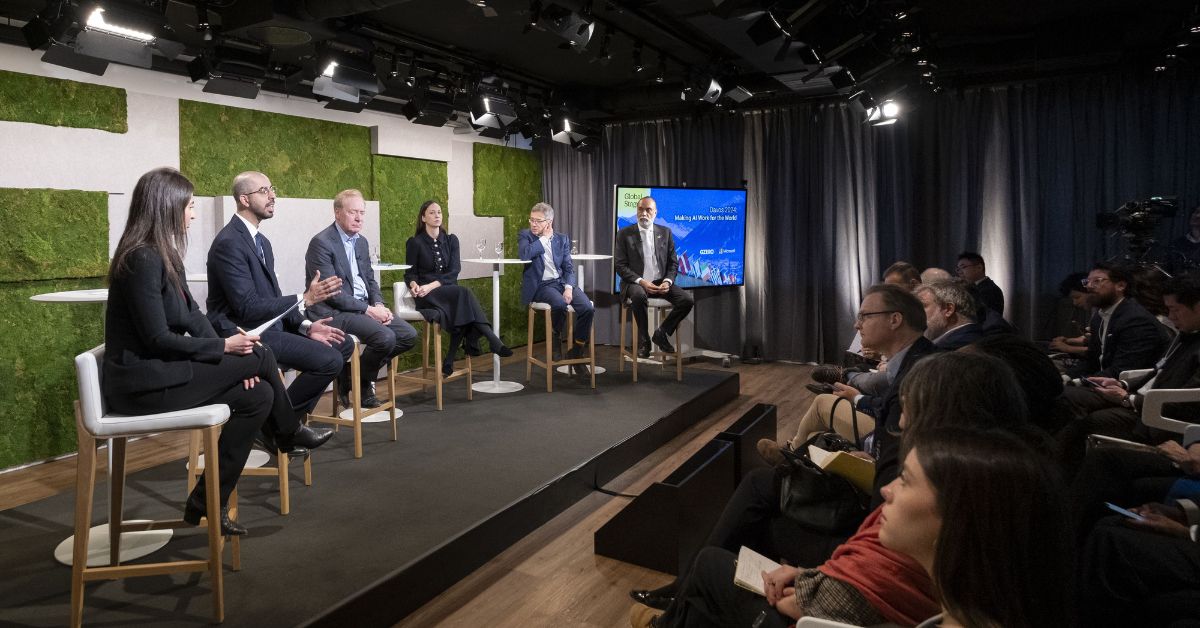DAVOS, Switzerland – There is a need to enhance the capabilities of decision-makers and government leaders in artificial intelligence and technology, said Omar Sultan Al Olama, Minister of State for Artificial Intelligence, Digital Economy, and Remote Work Applications.
Speaking at the 54th annual World Economic Forum in Davos, he highlighted the necessity of equipping them with digital skills to ensure effective implementation across various sectors, raising awareness of its role in boosting performance, efficiency, and productivity.
The session, titled “Harnessing Artificial Intelligence Technologies for Global Service,” focused on the potential of artificial intelligence and strategies for deploying its advanced solutions to serve global societal development and shape a better future for coming generations.
Al Olama noted that the UAE has developed an exceptional approach in building capabilities and training competencies in future technology through AI programs and skill development initiatives.
He remarked that the success of governments in various fields and their competitiveness on a global scale are tied to their proactive approach in adapting to new technological advancements.
“Governments should design solutions to face these challenges rather than ignoring them, leveraging the positive effects and significant opportunities presented by adopting these solutions. It is crucial to shift the negative perception of artificial intelligence today, fostering a new view of the opportunities and challenges it presents,” Al Olama added.
Al Olama further stated, “Our proactive stance in the field of artificial intelligence today lays the groundwork for a promising future. Thus, it’s imperative to identify solutions that address technological challenges and enhance international collaboration to design and develop responsible, ethical, and equitable AI frameworks.
The session delved into the opportunities presented by artificial intelligence and its potential to positively impact the world. It highlighted the necessity of closely studying AI’s rapid development stages to ensure effective regulation. Furthermore, it emphasized the need for balancing innovation with responsible use of these technologies to guarantee inclusive access and global benefits.
Joining Al Olama in the discussion were Brad Smith, Vice Chair and President of Microsoft; Ian Bremmer, President and Co-founder of Eurasia Group and GZERO Media; Eva Maydell, member of the European Parliament (EPP Group), President of the European Movement International and speaker for the EU Special Committee on Artificial Intelligence; and Amandeep Singh Gill, UN Tech Envoy.
The session, which focused on the potential of AI to yield positive global outcomes, was moderated by Bianna Golodryga, Anchor and Senior Global Affairs Analyst at CNN.








